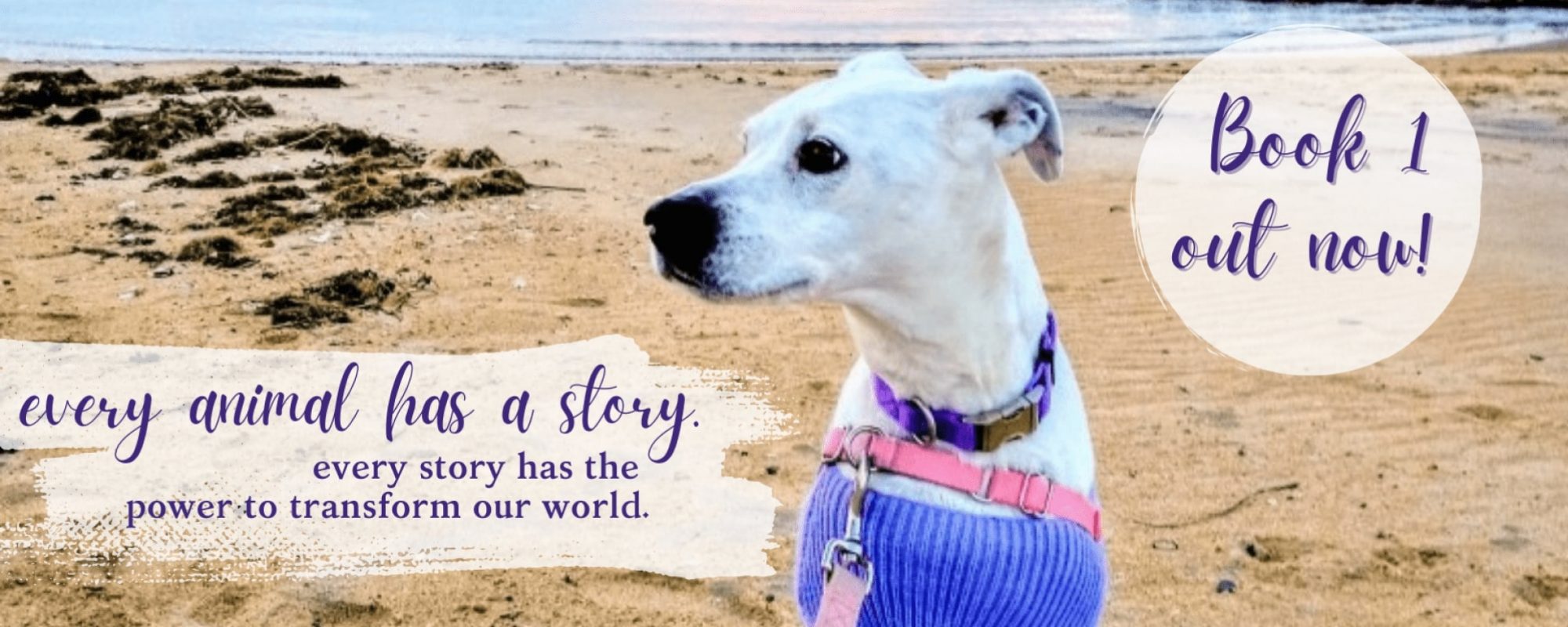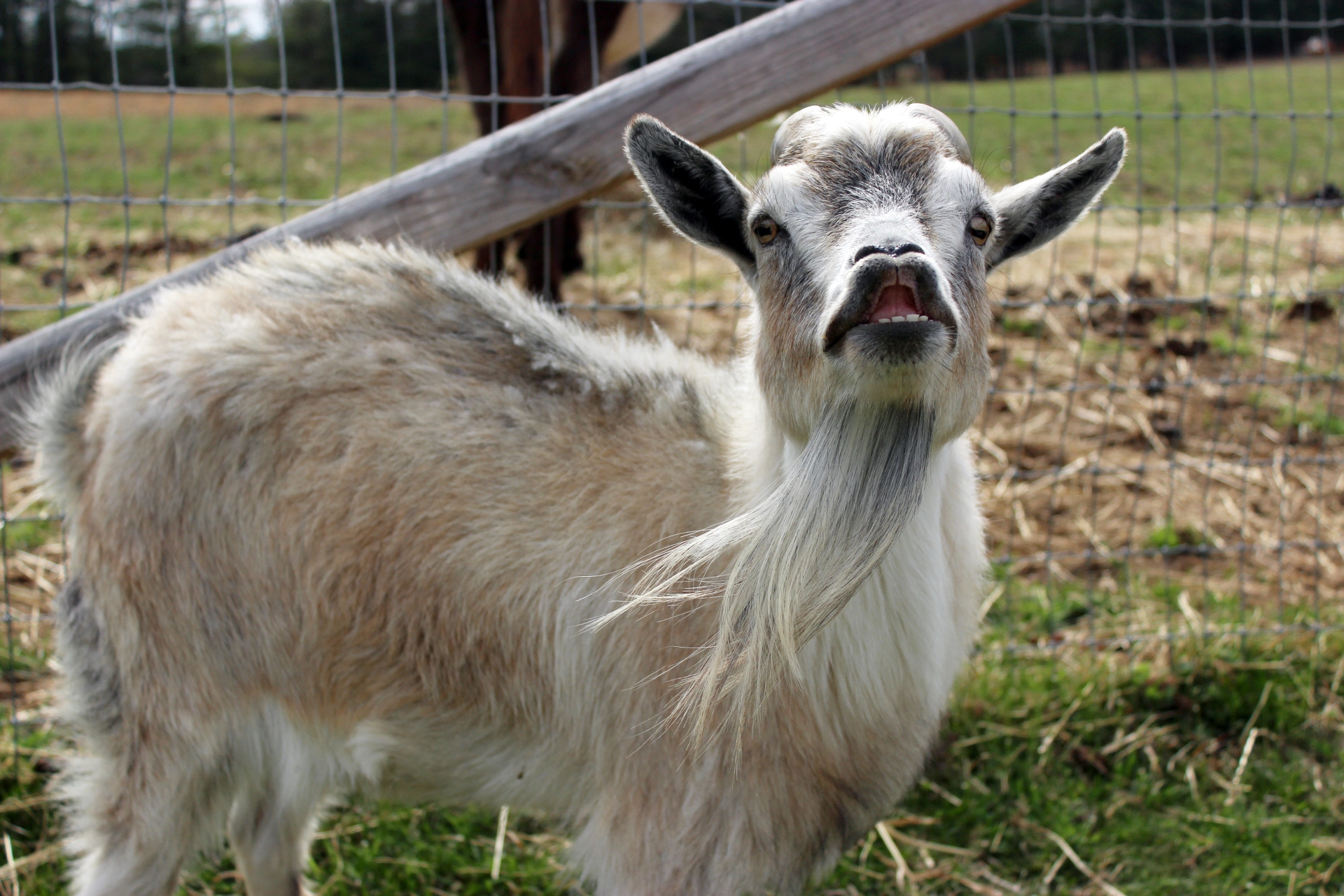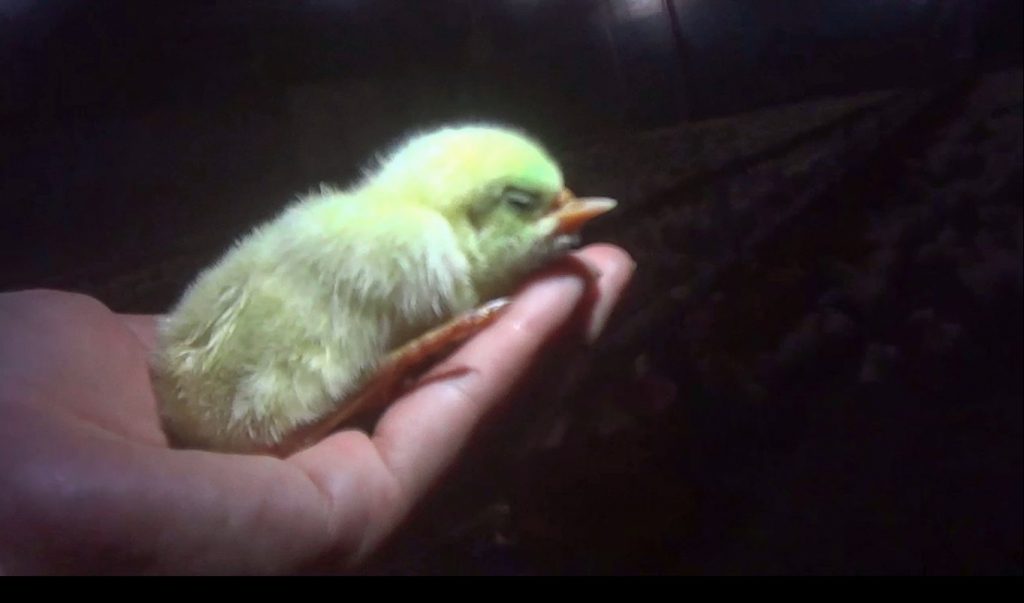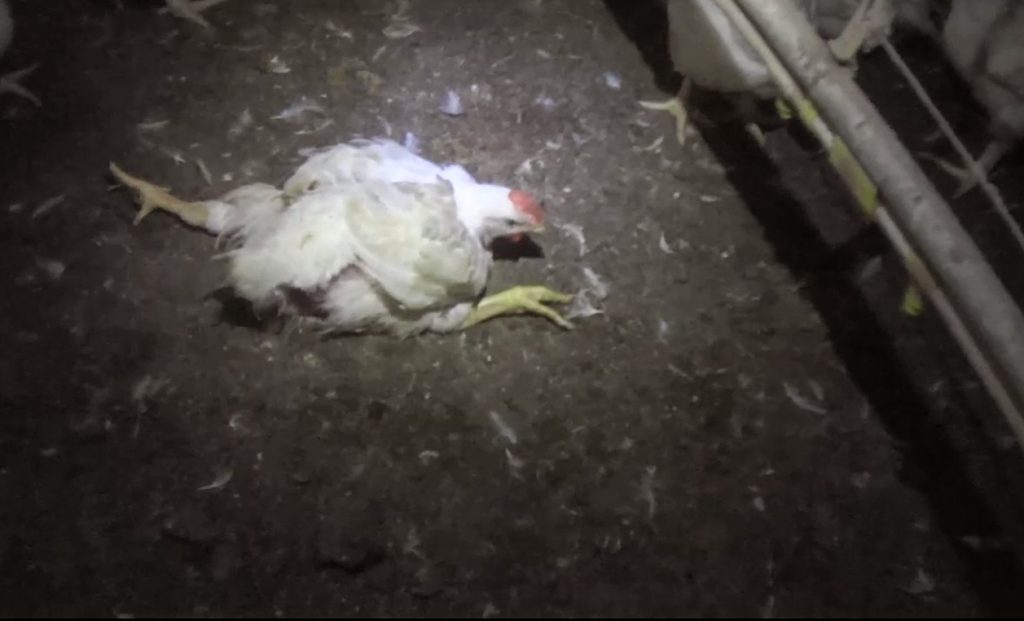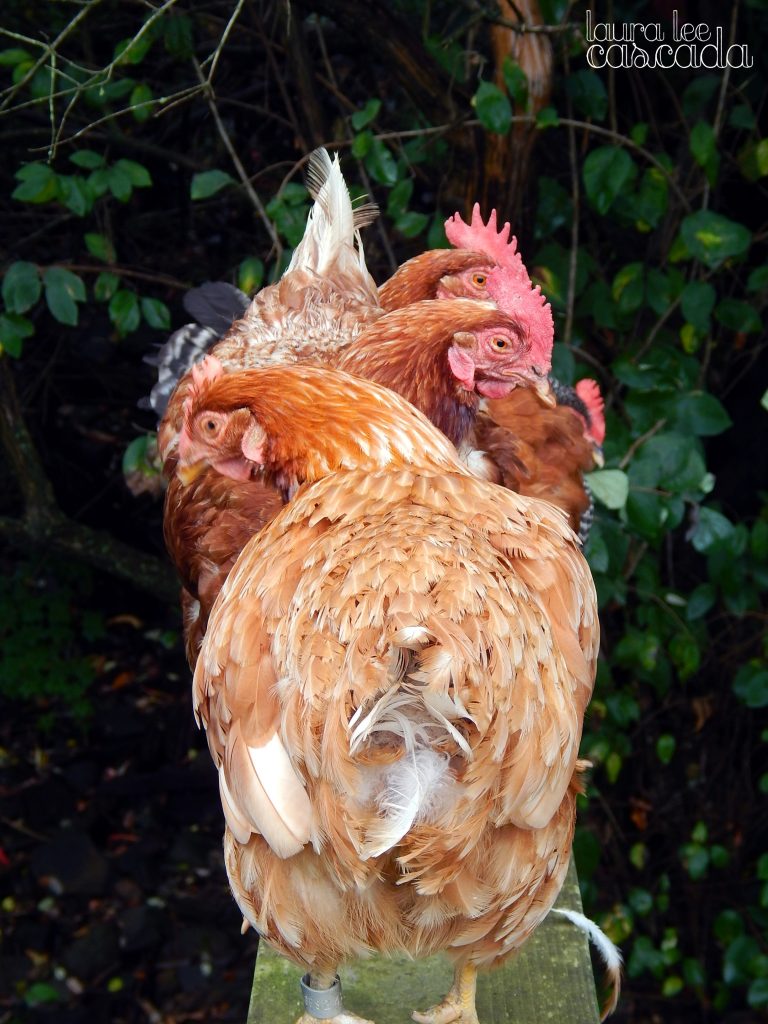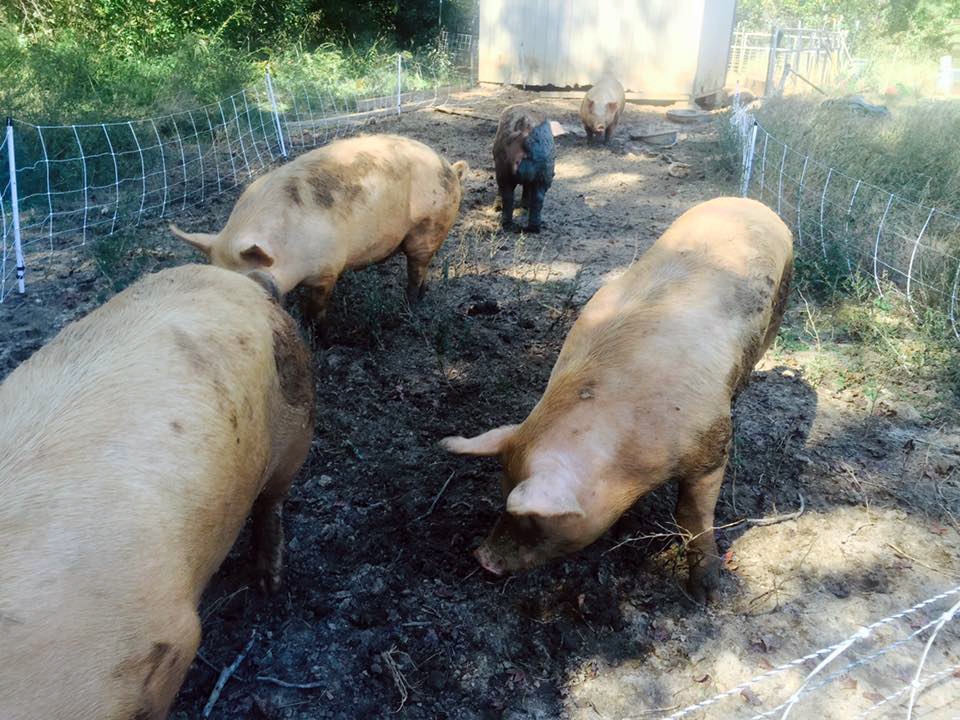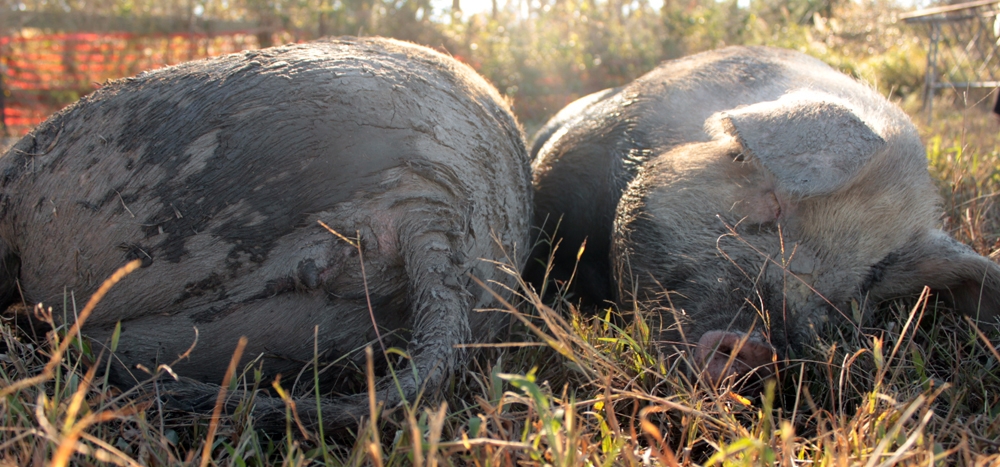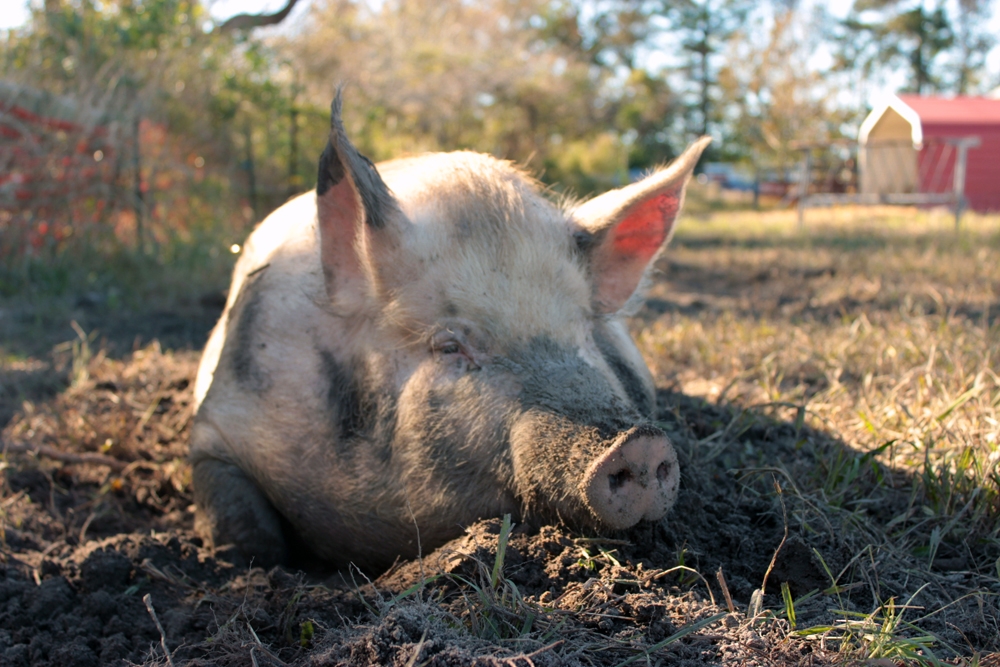The world as we know it is crumbling to our feet. We’re locked in our homes, we’ve lost employment, and loved ones are dying. We long for someone to wake us up and tell us that it’s all been a cruel joke. While I can’t make that happen, I can introduce you to someone who will make it all feel a little better, at least for a moment. Meet Toby the three-legged goat.

I first encountered Toby in the summer of 2015 at Richmond, Virginia’s famous Vegetarian Festival. I wandered between booths overflowing with “I Don’t Eat My Friends” t-shirts and So Delicious vegan ice cream bars, and then I saw him: At the center of a curious crowd of onlookers was a beagle-sized being with a bandaged front leg enjoying being coddled by his new caretakers.
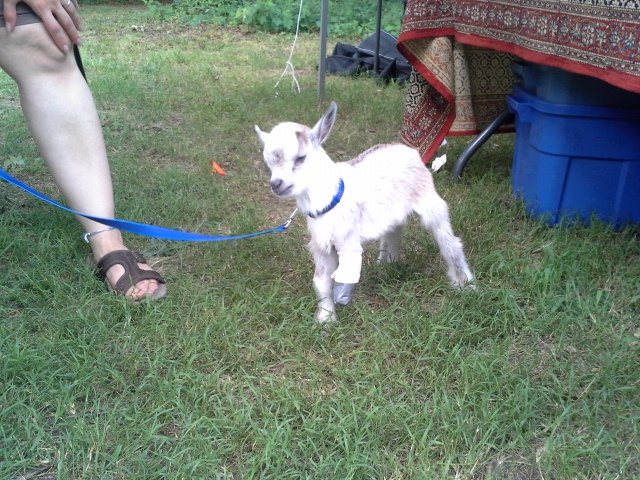
I learned that earlier that same month, this baby goat had been taken in by Peaceful Fields Sanctuary in Winchester, Virginia, at just one week of age–and still nursing. He’d been born in Chesapeake, Virginia, and had suffered a severe leg injury–but had not been provided any medical treatment. The young goat had only ever known pain and was clinging to his life, in danger of being euthanized, before his rescue.
Fortunately, Toby was surrendered to PFS, where his new family began to work around the clock to stabilize him. He’d already received a partial leg amputation by the time I met him and had come to the fest so that he could be continuously watched and cared for–yet there he stood so tranquil and calm, looking just a bit goofy. He was, already, a cheerful ambassador for the sanctuary who had saved his life, seemingly unfazed by his trauma.

Peaceful Fields is one of hundreds of farmed animal sanctuaries that have sprung up around the country–and the world–in response to a growing need for refuge for the fortunate animals who escape the animal agriculture industry and can live in freedom to share their stories with the public, representing the millions of others of their kind, the ones who haven’t been so lucky.
On factory farms, cows, chickens, turkeys, and goats like Toby often spend their lives in cramped, filthy conditions before their untimely slaughter. Perhaps most devastatingly, in the dairy industry, young calves and goats are separated from their mothers within hours of birth so that the milk can be spared for humans instead of being consumed by the young animals who need it.
Toby might be the famous face of PFS because of his annual appearances at Richmond VegFest, but he’s just one of the dozens of animals who have found their permanent home there. Located in the beautiful Shenandoah Valley of Virginia, PFS provides safe harbor to more than a handful of gregarious goats, as well as chickens, turkeys, two sheep, a pig, a cow, a donkey, and a horse named Elvis.
When you pay PFS a visit (post-coronavirus quarantine), you’ll be showered with cuddles and head rubs from the loving goat Warren, and if you’re lucky, Elvis the horse might give you a kiss–a remarkable sign of his rehabilitation after being rescued from a severe abuse case in Montgomery County, Maryland, from which one of his friends was so neglected that he was unable to be nursed back to health. But at PFS, Elvis thrives–alongside his shy but sweet best friend Brownie the donkey, who’s also healthy and happy after being abandoned in a field.

Chickens will dart about your feet, begging for the banana in your pocket–which the turkeys will steal if you’re not paying attention. And as you admire the diverse melting pot of feathered beings around you–like a rainbow of crayons all nestled together, despite their differences–you’ll savor this rare paradise in a world that’s often so bleak.

But back to Toby. Shortly after his VegFest debut, he was transported to Virginia Tech, where the rest of his leg was removed and he was given a blood transfusion so that he could finally fully heal from his injury.
According to PFS, “So many people generously donated to cover his medical costs and now he scampers and plays as any kid!”
Despite being three-legged, Toby hasn’t slowed down. He’s tenacious, jubilant, and silly. And he’s a stark reminder of how, against all odds, when you’re literally losing limbs, it’s possible to persevere–and to thrive.

Now, nearly five years later, I found myself encountering Toby’s antics–as a fully healed adult–up close. I recently moved to Front Royal, Virginia, just a short drive from PFS, and began attending the sanctuary’s volunteer days and tours. Last month, during the last few days before the COVID-19 lockdown, I made my way up to Winchester for a final visit.
As I snapped my camera, Toby seemed to know exactly what was up. He immediately put on his model face, grinning and baring his teeth.

He just couldn’t stop.

And just when he seemed to be done, he poked out his little pink tongue–as though tasting the sweet air of freedom around him.

While the coronavirus pandemic rages on, to Toby and his friends, life proceeds as normal: green fields, tasty meals, yellow sunshine, and mountains of love. Put simply, Peaceful Fields is, well, exactly as its name describes: peaceful–a smooth sea in these turbulent times.
Yet in this new normal, sanctuaries like PFS are being hit hard. They depend on donations and exposure from events like tabling at festivals and open houses. Now, more than ever, your donations are needed to keep them afloat.
If Toby made you smile, please considering paying it forward. For those who are in a position to give, there’s an easy way to support Toby and his friends: through a sponsorship. And it’s the perfect gift for a loved one this spring, with no need to leave your house. Just make a quick donation, and your chosen animal’s story and photo will be sent to your friend or family member–who can even schedule a visit with their new friend once the quarantine has been lifted.
Click Toby’s card below to get started. And don’t forget to share a smile today.


